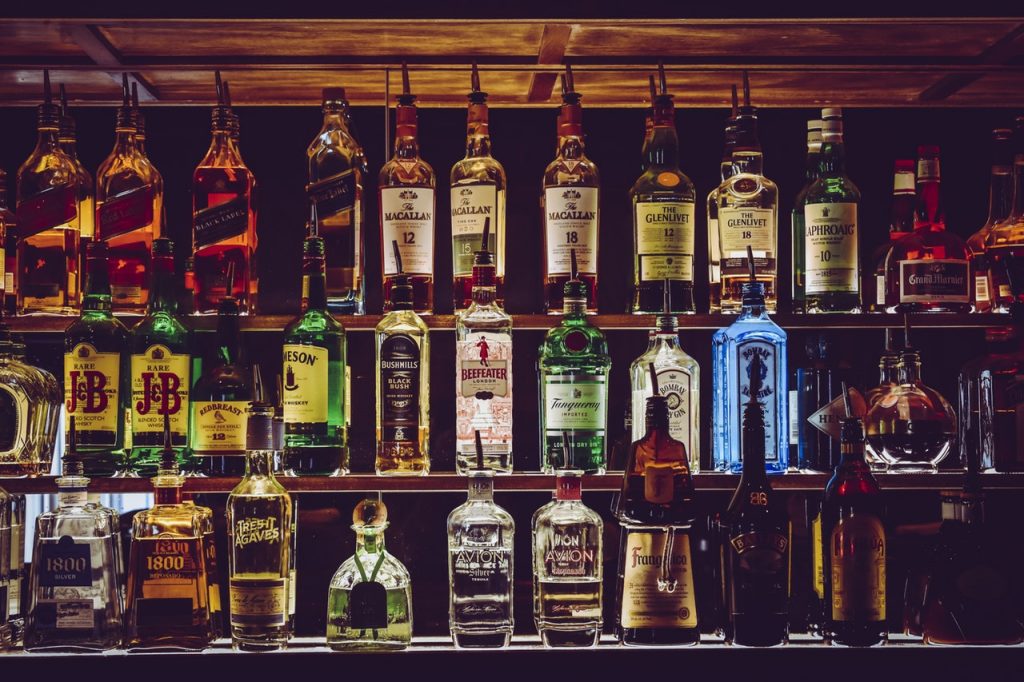In theory, a bottle of whisky can last almost forever. However, the actual shelf life of any bottle depends on how well it has been stored, and this is impacted by a number of external factors. These include whether or not your bottle of whisky has been opened, the lighting or humidity conditions where the bottle is stored, and even the air in the bottle. Simply put, not taking proper care of your bottles can make your whisky spoil faster.
All whisky collectors need to know how long a bottle of Scotch can and should last. Here, we’ll go through the steps you will need to take to ensure that your personal whisky collection will last as long as possible.
How to store unopened bottles of whisky properly
There is a science behind storing a bottle of whisky, which involves controlling the levels of light, temperature, air, and even humidity. All whisky needs to be stored correctly from the moment you bring it home, even if the bottle is unopened and sealed.
All bottles of whisky should be stored upright, away from direct sunlight, and below room temperature, in an environment that isn’t too humid. Unopened bottles of whisky won’t oxidise, so you should avoid decanting it until the bottle has been opened, and is less than half full.
Whisky matures, like most spirits, by being left to age in the cask before it is bottled. However, unlike wine, whisky doesn’t mature once it’s in the bottle, so the flavour profiles won’t change over time. If you’re just beginning your whisky collection, bear in mind that you are effectively buying your whisky pre-aged. A bottle of 12 year Scotch will remain a 12 year Scotch, even if it’s opened 100 years later. The flavour will only start to change once the bottle is opened, as oxygen starts to react with the spirit in the bottle. Consequently, there’s little point in keeping a bottle of whisky unopened, unless you’re saving it for a special occasion, or you’re looking to sell it on at a later date.
Take care when storing open bottles of whisky
As we mentioned earlier, whisky changes once the bottle is opened, which can alter the taste for the worse. While you can’t totally prevent this from happening, there are steps you can take to slow down this process. If your bottle has a cork, you can get an additional cap on top to further protect your scotch against evaporation. However, your most crucial measure should be to keep an eye on the temperature to prevent your whisky cocktail from evaporating. If your bottle has a screw cap, remember to regularly retighten the bottle by hand, as they tend to loosen on their own over time, leading to increased evaporation.
Both of these methods stop air from getting into your open bottle of whisky, which oxidises your scotch. The existing air in the bottle, and any new air which may enter the bottle, slowly reacts with the whisky and changes its flavour profile. In the short term, this can either ruin the whisky or improve it, depending on your personal preference. Over a prolonged time, however, oxidised whisky will lose its original flavour and colour, which you want to avoid.
The best way to avoid oxidising your whisky tasting set, and changing the flavour, is simply to drink it. An open bottle of whisky lasts much longer if it’s more than half full, with a shelf-life of up to five years. But once it reaches the halfway mark, this drops to just one or two years. If you want your whisky to last even longer, the best thing to do is decant it into a smaller glass bottle, reducing the amount of air in the bottle and stopping it from oxidising any further. However, if you do intend to drink your whisky instead of leaving it on the shelf, then an Irish coffee would be an excellent choice. You can enjoy it as a dessert after your dinner or you could simply enjoy it for no reason at all. Regifting whiskey is also high on the list of budget gifts, so if you are planning on decanting the whisky into a smaller bottle, you can add the decanted battle to a gift for someone and throw in a coffee subscription to make their own Irish coffees at home.
Now you know the basics of how to keep your whisky at its best possible quality, you can start building your own collection of rare scotch without having to worry about it losing its flavour or its value.



